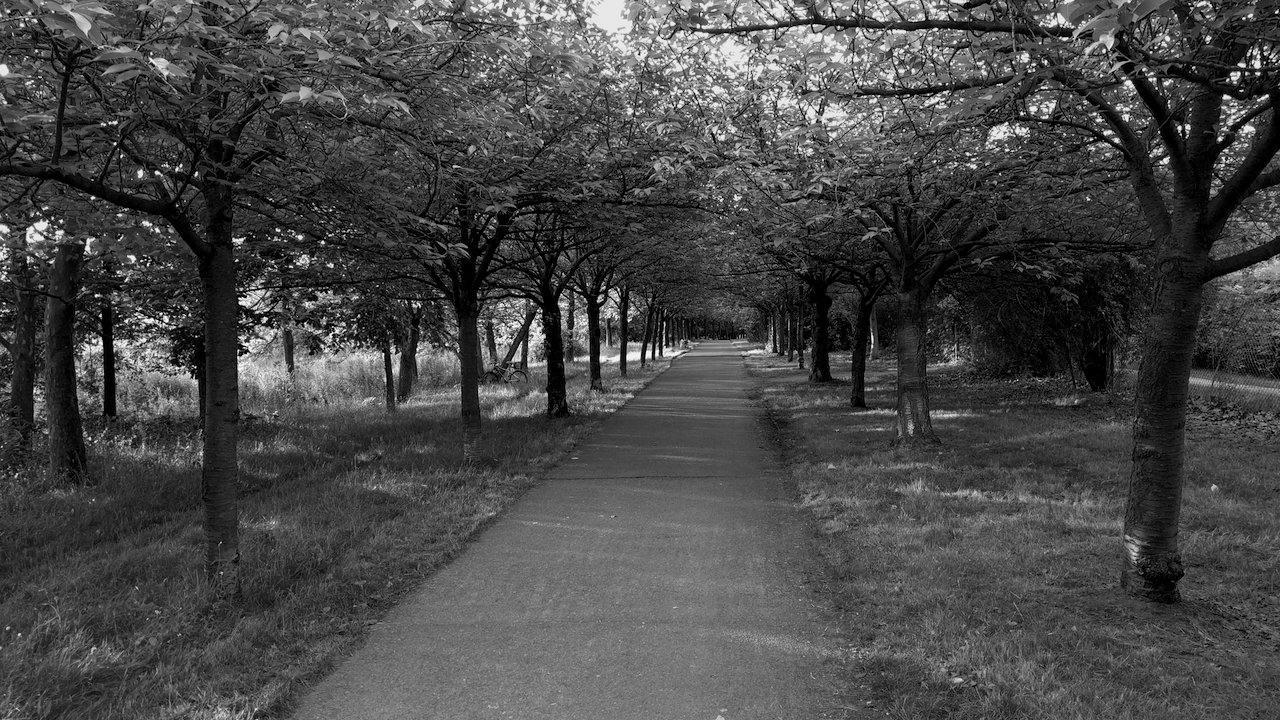A Difficult Time Writing
To spend the majority of your time crafting artificial symbols on a surface—whether your medium is stone, paper, or pixels—will always be a curious behavior.
Berlin 2017
In the introduction to the essay collection Slouching Toward Bethlehem, Joan Didion puts into words a sensation that nearly all writers feel.
I could tell you that I liked doing some of them more than others, but that all of them were hard for me to do, and took more time than perhaps they were worth; that there is always a point in the writing of a piece where I sit in a room literally papered with false starts and cannot put one word after another and imagine that I have suffered a small stroke, leaving me apparently undamaged but actually aphasic.
There’s no need to emphasize that aphasia isn’t exactly the ideal condition for a writer. Having full possession of your faculties for language and feeling confident in your capacity to describe or elucidate or inform seems to be nothing less than a necessity. Yet that’s probably a misleading assumption—a sensation of tranquility when your pen meets the page doesn’t quite sound right to me, nor does it fit the writers that I know.
Of all the various ways writers are described, in fact, I’ve always appreciated a rather blunt formula: a writer is someone who has a difficult time writing. We certainly don’t have an exhaustive definition in that sentence, but it does hint toward a sensibility that seems right. And that’s true even though plenty of writers work fast to toss out vivid and lucid sentences. It also doesn’t contradict the many writers who manage a businesslike pace, punching the clock to put in some good pages. What that definition ends up suggesting, however, is a more elusive sensation, one that many writers actually feel, where the necessity to find the precise word turns into a compulsion, where the ever-growing and impossible to satiate desire is to better articulate convoluted, opaque thoughts into crisp and coherent words.
To spend the majority of your time crafting artificial symbols on a surface—whether your medium is stone, paper, or pixels—will always be a curious behavior. Underneath it must be some rather elusive desire which forces those peculiar people we call writers to obsess about sentences. Perhaps it is simply the timeless human desire to create, but that still seems incomplete, or at least imprecise: it is much easier to consider a sculptor or painter or carpenter as a creator. Although that’s not at all because of the physicality of those disciplines—it isn’t about having a tangible result. What is distinct, it seems to me, is that the writer’s toolbox is limited to the language that we use to communicate. If you spend all day fiddling with words, you’re playing with the elements of thought, and your artistry is indistinguishable from the behavior we expect of every child—the writer’s toolbox is what you also use to order dinner, for arguments, in moments of affection, when you complain. The narrator inside your head, to put this another way, speaks in words and not in sculptures.
Explore writing, travel, and literature—with a new issue every Friday.
Of course most people don’t have a nagging obsession about words—they simply write the memo or email or prepare the presentation, then move on with their day. It is not necessarily indifference, and they may even appreciate an artful sentence, or a well-turned phrase, but they lack the ravenous, relentless need to locate the perfect word and to form that ever-elusive perfect sentence. Having to string together a few lines, especially when they’re meaningful or emotional or simply important, almost always comes with an ambition for improvement, but it somehow triggers frustration, confusion, and quitting. Most people scribble what they must—what’s needed for a job, maybe the occasional letter—but those moments come with reluctance, and they pass after a sentence arrives that’s ‘good enough’, or ‘close enough’—in what many writers would consider an absurd mentality. The writers that I know, I imagine it will surprise most people to learn, almost universally strain over their sentences, as the act of writing, for them, is actually more effortful and filled with stubborn knots and what appear to be intractable problems than what most people experience.
Although you might even consider that reasonable: it is the separation between the amateur and the professional, and writers, if they take their craft seriously, need to labor just like everyone else. Obviously it will be challenging for professionals. They are doing the work. The flaw in that reaction comes once you start to make comparisons to other disciplines. A painter, for instance, blends a palette and fills a canvas with more ease and quicker than you; a photographer frames a shot and measures the right lighting much faster than you; a musician almost certainly has a sense for rhythm and tempo and a remarkable ease at joining a new composition in a way that you might consider mysterious. So why can’t the same be said of writers? Why might they struggle more with sentences? The distinction isn’t related to skill or seriousness or even measure itself in output—these are the writers who face the challenge of a blank page and explain the adversity in unsettling terms yet still end up creating day after day.
Notice the dejection in Didion’s tone when she writes “all of them were hard for me to do, and took more time than perhaps they were worth.” In the same introduction she went to San Francisco “because I had not been able to work in some months, had been paralyzed by the conviction that writing was an irrelevant act, that the world as I had understood it no longer existed.” A belief that your work is worthless and a sensation of paralysis isn’t quite the recipe for contentment. You might even ask, amid these sensations, what is the driving force? After writing these lines, it is worth noting, and worth contemplating, Didion wrote for fifty more years.
The distinction is clearly about the overwhelming drive some people feel to put down words, to shape thoughts into sentences, with the appreciation of a well-turned phrase becoming the desire to create a well-turned phrase, in full awareness that the desire to create something worthwhile is almost certain to make the experience nothing less than difficult. You might even believe that the need to create a worthwhile sentence guarantees a struggle. Anybody who appreciates good writing is aware of all the pitfalls—there are landmines and potential missteps with every word. There’s no simple way to reach the bottom of a page in an intriguing and novel way without the necessity of that labor. I am reminded of how Susan Sontag described those rare moments of feverish writing, when the words seemed to gush from her hand, a flow of blood that left her body and covered the page; it is a description quite similar to how Hemingway talked about good writing a half century earlier, and in both it is the imagery of depletion, of putting what’s essential onto the page—which not everyone is willing to do, even if they happen to like the goal.
You do hear plenty of conversations about the desire to write. Or about the mysteries of inspiration. And you also hear plenty of conversations about the results of writing. On the feeling of having written. Yet I must admit that neither the before nor the after hold much appeal for me. It is the realm of planning for something that probably won’t happen or celebrating something that’s already past. I think I’m most interested in the marrow of the work—what happens when you’re actually sitting down and shaping the sensations inside your head into the words that land on the page. In those moments, in that muck and confusion and difficulty, what is the instinct, the compulsion, that forces some people to keep coming back?




